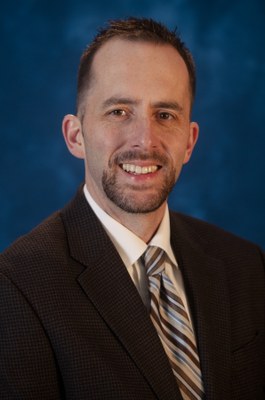SPHIS Home » Alumni and Donors » Alumni News » Alumnus Spotlight: James Nash Discusses Connection between Public Health and Pharmacy
Alumnus Spotlight: James Nash Discusses Connection between Public Health and Pharmacy
Name: James Nash, PharmD, MPH
Graduation Date: 2011
Degree: Master of Public Health (MPH) with a concentration in Health Management
Reflection on earning a degree in public health from SPHIS
Nash said, “I seem to always have a passion to learn more. Back in 2006, while I was working at Humana, many of my colleagues were pursuing other degrees. Humana invested in their employees and provided a tuition benefit. Most pursued an MBA. I wanted to choose something different and something that would complement my pharmacy training. Public health seemed like a natural fit. It was also an emerging topic in the accreditation standards of Doctor of Pharmacy programs. The Accreditation Council for Pharmacy Education was asking programs to infuse more public health into the curriculum. I knew I needed to learn more in order to be able to teach students and future pharmacists more comprehensively about public health.”
Before Humana, Nash worked at Kaiser Permanete. At both Kaiser and Humana, he was intrigued how health plans would use data to manage populations, not individuals. His training had always been at the individual patient level so he became interested in learning how fields of study, such as biostatistics and epidemiology, could help improve health at a population level.
Nash’s professional experience
When asked how his SPHIS degree helped him stand out he said, “It shows I possess a unique skillset that many of my peers do not have.” He believes this set him apart from other applicants and was a major factor in landing his current job.
In August 2017, Nash accepted a position as the Associate Dean of Experiential Education at Sullivan University College of Pharmacy, a position that builds on past higher education experience at Sullivan and Regis University.
He leads a team of individuals (both internal and external) dedicated to providing students with unique experiential clinical rotations. Additionally, he leads Interprofessional Education (IPE) components of the program. IPE is becoming a standard accreditation requirement for many health professional programs, including public health and pharmacy.
Connection between public health and pharmacy
Nash said, “Pharmacists are uniquely situated to not only help an individual with many of their healthcare needs but to also educate and provide resources to the community in many ways. Pharmacists can make a big impact in public health issues that impact our communities.”
Advice to students
“Find something that will allow you to use the skills and knowledge that you have been taught. Be flexible and if you are able, move away from an area in order to secure that “ideal” position. It is not always easy to find something here in the Louisville area coming right out of school. Move away and gain some experience and if you want to come back to the Ville, you’ll have more of a chance securing that perfect position. Use your network wisely and most of all continue to engage and move the profession forward.”
Connect with James






